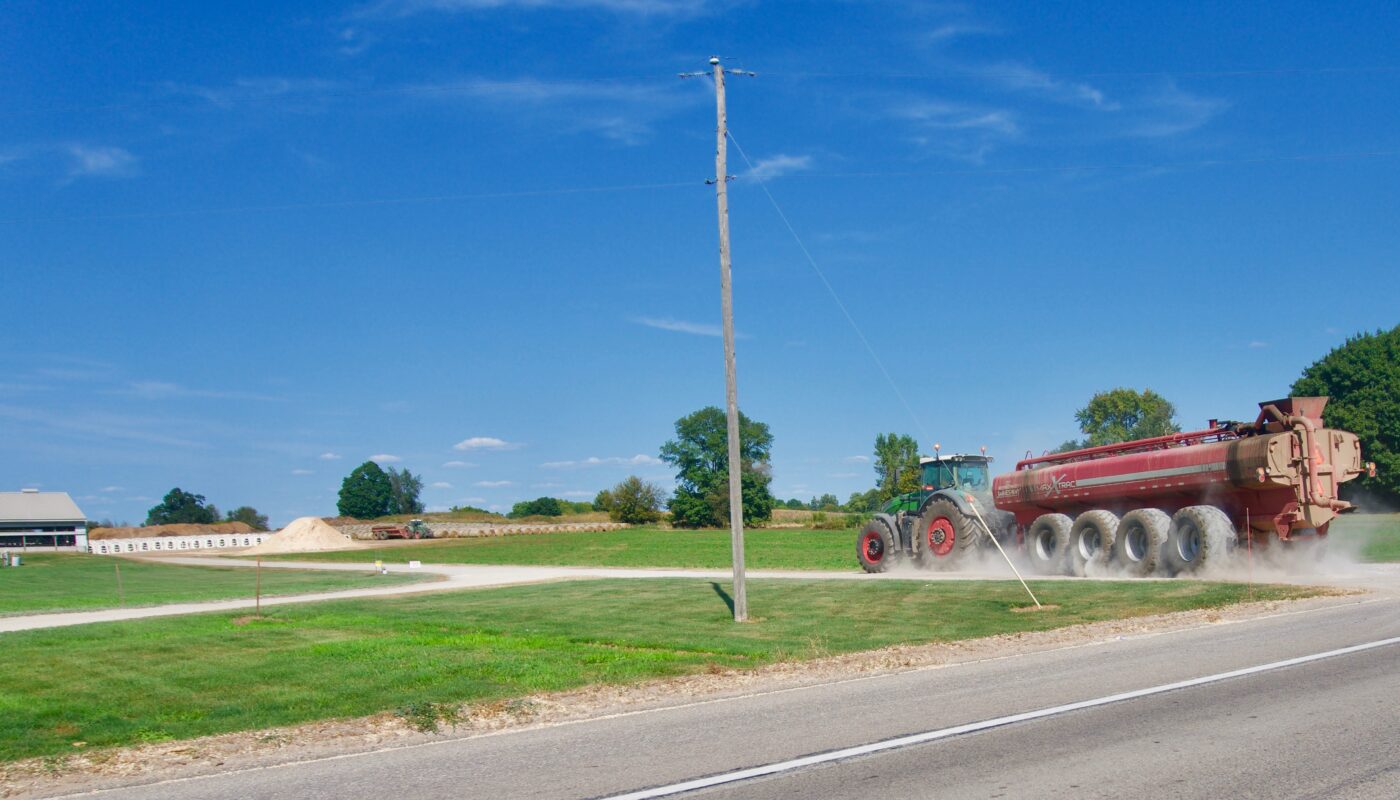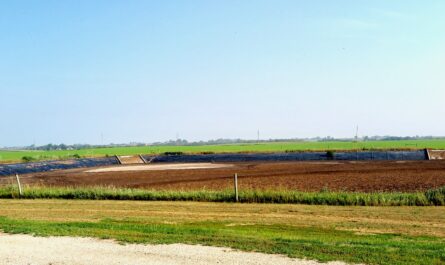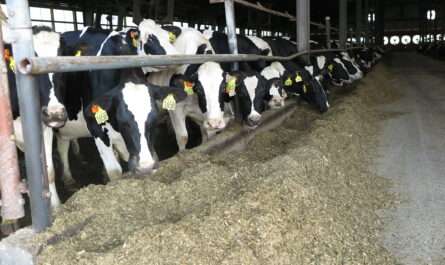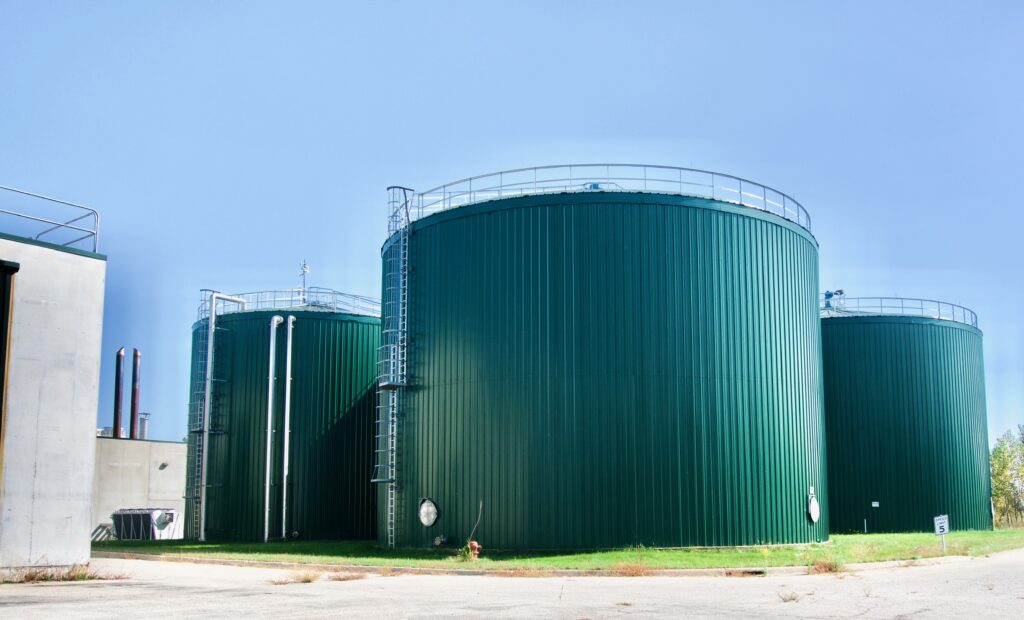
FREMONT, MI. – Anticipating a surge of funding for building manure biodigesters that capture methane for electricity and transportation fuels from millions of tons of farm animal wastes Michigan’s environmental agency last year drafted more rigorous operating rules to protect state waters from a new tide of farm-based pollution.
The action by the Department of Environment, Great Lakes, and Energy gained powerful legal justification in late July when the Michigan Supreme Court decided that EGLE has full authority to “take all necessary steps” to ensure that manure produced by Michigan’s industrial-scale livestock and poultry feeding operations do not pollute state waters.
But what appeared to be a pair of breakthroughs in compelling industrial agriculture to more responsibly manage animal wastes that have polluted Michigan’s surface and groundwater for decades, may turn out to be less than expected. Stronger regulatory measures could succumb to political pressure from farm and energy interests and their allies in Lansing.
In the state House, a bipartisan group of representatives proposed two statutes last June – HB 5789 and HB 5790 — that would essentially exempt manure digester wastes – or digestate — from the agency’s new oversight. In addition, the Whitmer administration is supporting a third measure in the state Senate to increase financial support for renewable fuels, including methane from manure, without fully understanding the consequences to water quality posed by digestate.
“On the one hand the Senate is proposing provisions to build more biodigesters,” said Christy McGillivray, the Michigan Sierra Club’s political and legislative director. “On the other the House is proposing to undermine EGLE’s authority to regulate digestate. It makes no sense.”
The governor’s office and the offices of state legislators did not respond to queries from Circle of Blue. In a statement issued in June, Rep. Graham Filler, a Republican and the lead author of the House bills, called digesters “a valuable renewable energy source.” He added: “By adopting new, commonsense regulations, we can support these facilities, enhance our environmental efforts, and promote economic growth in Michigan.”
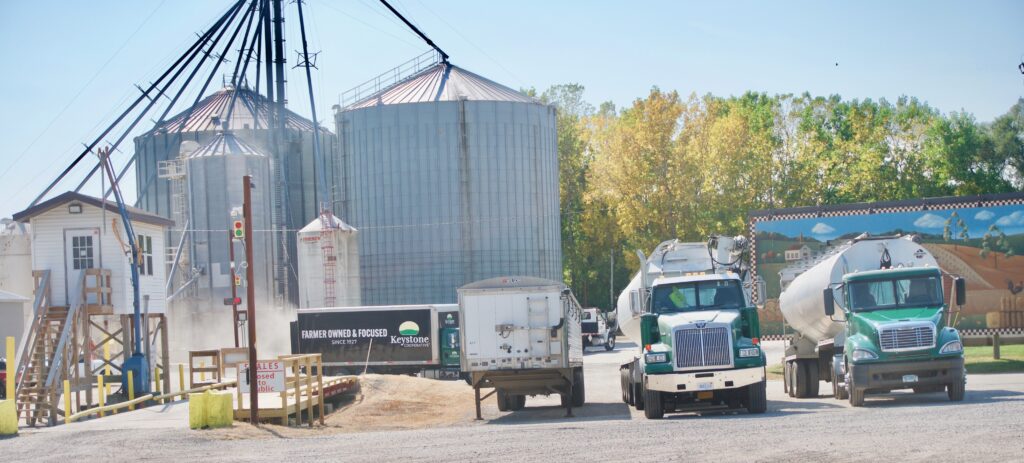
A Fresh Path To Environmental Protection
EGLE staff members involved in writing the new digestate regulations, the most stringent outside of California, knew the agency would find itself caught in a political and economic whirlwind. The reason: In August 2022 the federal government enacted the Inflation Reduction Act, which included more than $140 billion in direct payments and tax incentives for renewable fuels and cleaner electrical generation.
The intent is to help reduce greenhouse gas emissions 40 percent below 2005 levels by the end of the decade. But the effect could make agricultural pollution worse. Included in the law were provisions to produce more ethanol from corn, the most heavily fertilized and polluting crop, and methane from slowly cooking manure in biodigesters.
The new federal policy attracted equal measures of support and opposition. Defenders assert that digesters convert wastes from livestock and poultry into a renewable fuel that replaces fossil fuel. The conversion also offers the big livestock and poultry production facilities, so-called concentrated animal feeding operations (CAFOS), a new source of revenue from selling the gas and from an assortment of credits and tax breaks.
Critics cite studies in California and Wisconsin, for example, that found that the added revenue for methane is replacing milk as a major profit center for large dairies. It’s prompting farms to increase the number of cows they feed, thus increasing the size of dairy CAFOs and the amount of manure they produce.

Under Gov. Gretchen Whitmer, Michigan has clearly sided with industrial companies, among them Chevron and South Jersey Industries, in offering incentives for digester development. In 2008 just seven farm-based biodigesters operated in Michigan, according to the U.S. Environmental Protection Agency. Last year 13 more manure biodigesters were under construction in Michigan, more than any state except California, according to Argonne National Laboratory. At least 10 more are in various proposal stages, according to research by Cheryl Ruble, a physician from Montague and a prominent opponent of manure digesters.
Digestate is Toxic
Here lies the primary problem with digesters in Michigan, say critics. Digestate has different chemical properties than raw manure. The process of cooking manure in the digester’s oxygen-deprived (anaerobic) tank changes the chemical properties of nitrogen and phosphorus, the principle pollutants in manure, making both elements more mobile in the environment.
Second, the same amount of manure that goes into an anaerobic biodigester also come out as digestate that must be disposed, primarily by spreading it on farmland. Michigan, one of the nation’s largest producers of milk and meat, generates plenty of digester feedstock — 4 billion gallons of liquid manure and 60 million tons of solid manure annually, according to EGLE.
And third, many of the new farm-based digesters propose to mix organic wastes from food processors, slaughterhouses, and other manufacturers into the manure, which adds to the complexity and risks of disposing digestate on land.
“Coming from the perspective of rural communities, folks already have their watersheds inundated by these wastes,” said Sarah D’Onofrio, a rural sociologist at the University of Tennessee who studies biodigesters in Wisconsin. “Digesters make the poop more water soluble. These fields are already so concentrated in nutrients. It only increases the likelihood for runoff.”
Reducing the pollution threat requires industrial producers of meat and milk to significantly reduce how much digestate they are allowed to spread on fields. “Applying the same volume as raw manure could result in excess nitrogen, leading to leaching into groundwater or runoff into surface water,” said Ruble.
Aware of the risk EGLE staffers went to work on permits to limit the threat from digester pollution. Three were issued this year under the state’s groundwater protection law. They establish more stringent operating practices than the agency requires for older farm-based digesters and for spreading untreated manure from large livestock and poultry farms.
The new conditions include regularly sampling manure for the concentrations of nitrogen, phosphorus, ammonia and other pollutants, and monitoring groundwater for their presence. They require operators to keep careful records of operation including monthly and annual reports on the quantity of digestate discharged by biodigesters and the precise locations of where digestate was spread.
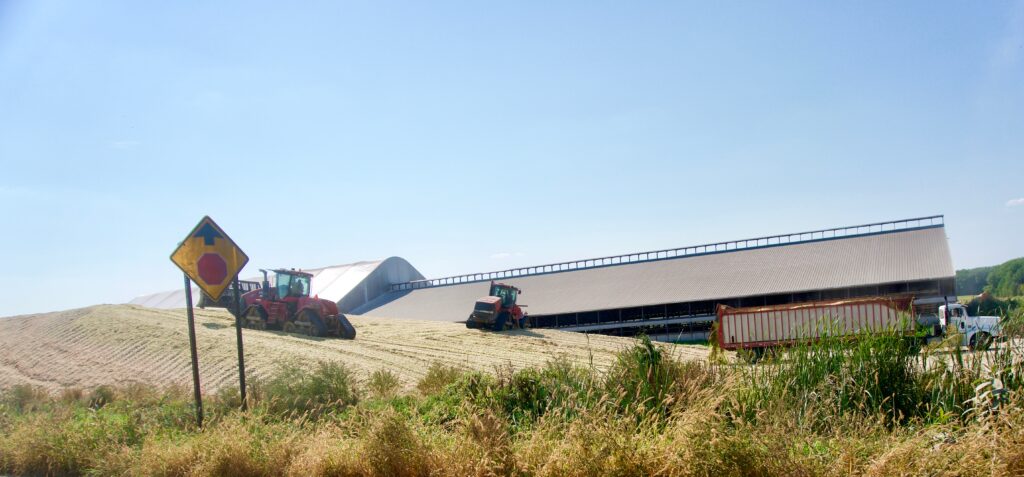
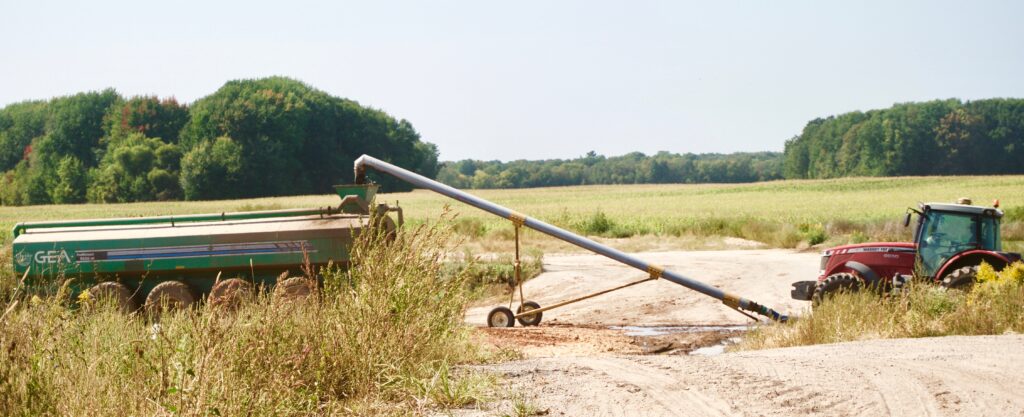
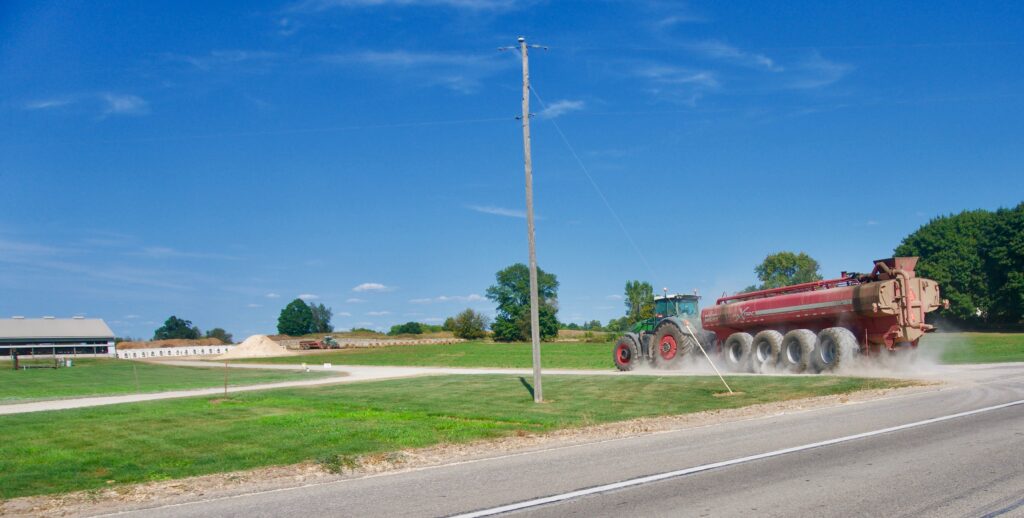
Operators have daily and annual limits on how much digestate they are allowed to discharge based on sampling soil. And they require operators to notify the state if other organic waste streams, like food wastes, are added to the manure to be digested. The intent, say EGLE staff members, is to prevent the kind of nutrient contamination that animal agriculture has already caused in Lake Erie, Saginaw Bay, Lake Macatawa, hundreds of miles of streams, and thousands of groundwater wells across Michigan.
“The law requires us to protect groundwater as a source of drinking water for millions of residents in the state,” said Christine Alexander, the manager of permits for EGLE’s Water Resources Division. “If there are other pollutants in the digestate, in certain elevated concentration, that can be problematic for our groundwater.”
Legislature Objects
Yet within weeks of issuing the first of the new permits last spring EGLE came under attack. Rep. Filler and five colleagues proposed a two-bill package that would classify spreading digestate on land as a “beneficial use byproduct,” defined by state law as a fertilizer or soil conditioner. The change would allow digester operators to avoid the new rules and spread the waste on farmland with scant oversight. An analysis by the Environmental Law and Policy Center, a legal group in Chicago, found the bills “violate both Michigan and federal law, including the Michigan Supreme Court opinion.”
“There’s no third party verification of what’s in the waste. On top of that the Michigan Department of Agriculture doesn’t track where it goes,” said McGillivray of the Sierra Club. “The state knows this is a problem. Adding digestate to the beneficial reuse program is a terrible idea.”
Critics also are concerned about a proposal in the state Senate that is meant to expand the market for methane produced by biodigesters. SB 275 , proposed by state Sen. Sam Singh, a Democrat, and 13 co-sponsors, is intended to establish a system for issuing credits to encourage replacement of fossil fuels with “low-carbon” renewable fuels, including methane.
The credits aim to enhance Gov. Whitmer’s program, established last year, to supply 100 percent of Michigan’s energy from cleaner sources by 2040. The Michigan proposal is based on a similar program developed by California in 2011 that established a carbon tax credit trading system that makes methane production in biodigesters a lucrative source of revenue for farmers and digester developers. Last year the tax credits were worth about $60 per ton of carbon removed from the atmosphere, according to researcher by Aaron Smith, an agricultural and resource economist at the University of California at Davis.
But critics say that neither the Legislature nor Gov. Whitmer are considering the combined effect of the House and Senate bills – weakening oversight of a polluting industry – on Michigan’s water quality. “What I’d recommend is that SB 275 allow credits for renewable natural gas produced from waste water treatment plants and landfills. They are highly regulated,” said Ruble. “But if you monetize manure, they’re going to make more manure. CAFOs will expand.”
Case Study in Fremont
Here in Fremont, a Newaygo County farm town surrounded by big CAFOs, the sturdiness of one of EGLE’s first draft biodigester permits is being tested by a coalition of state and regional environmental groups. EGLE issued the draft permit earlier this year to Generate Fremont Digester, which owns a biodigester for farm and food wastes that was built 12 years ago in the city’s industrial park, and shut down in January.
The digester’s operating history is dismal. In 2017, under the administration of Republican Gov. Rick Snyder, Generate Fremont was awarded a permit to manage digestate under the weak state rules that applied to spreading raw manure on farms. The permitted practices caused an uproar in Newaygo County as residents complained of terrible odors from spreading and storing the digestate.
EGLE investigated and found numerous violations. The state also evaluated the relative risks of the stew of contaminants in manure and food wastes being added to the digester. After the company applied for a new permit, EGLE responded in 2023 with operating conditions for storing, spreading, and monitoring that are much stricter than any ever imposed on a Michigan biodigester handling manure.
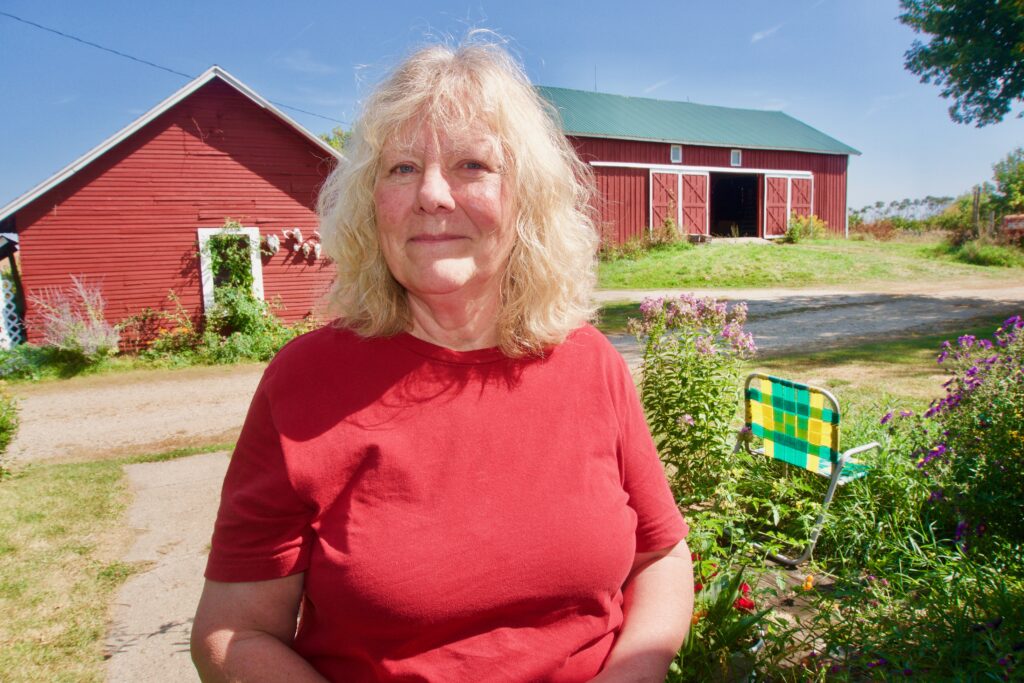
“We all know what manure smells like when it’s being spread,” said Kathy Morrison, a fruit farmer who lives outside Fremont. “But this digestate? I can’t even describe how bad it was. It was like sticking your head in a full porta-potty.”
Initially, Bill Caesar, the company’s president, threatened to permanently close the facility. “Not only are the proposed changes to our permit prohibitively expensive,” he told EGLE, “these regulations are also operationally impossible for us to comply with.”
The company reconsidered, though, and EGLE has asked for comments on its draft permit. The environmental coalition, led by For Love of Water (FLOW), a Traverse City based environmental law and policy group, has urged EGLE to hold a hearing to give the public an opportunity to strengthen the draft permit.
The group identified several permit provisions they said need to be strengthened. They include requiring Generate Fremont to consider safer alternatives for disposing of digestate other than spreading it on fields. A number of alternatives are available and in use across the country including the Sedron Technologies Varcor system.
The groups said that another primary weakness is Generate Fremont’s disregard for providing the information and adhering to the conditions that the permit requires.
“Biodigester buildout with federal government and state subsidies looks likely to be massive, so any environmental impacts will also be massive,” said Carrie La Seur, FLOW’s legal director. “This is not your grandma’s digester. They’re industrial scale, to match other industrial ag installations that have transformed farm country and devastated soil and water quality. Regulation of industrial digesters is in its infancy. What permits will be required? What impacts will be evaluated? There are many questions and we want to make sure they get answered.”
EGLE agreed to a public hearing scheduled for November 20.
— Keith Schneider
